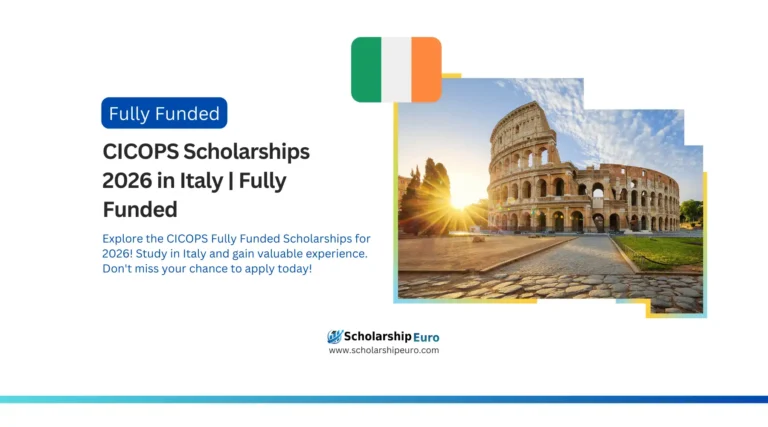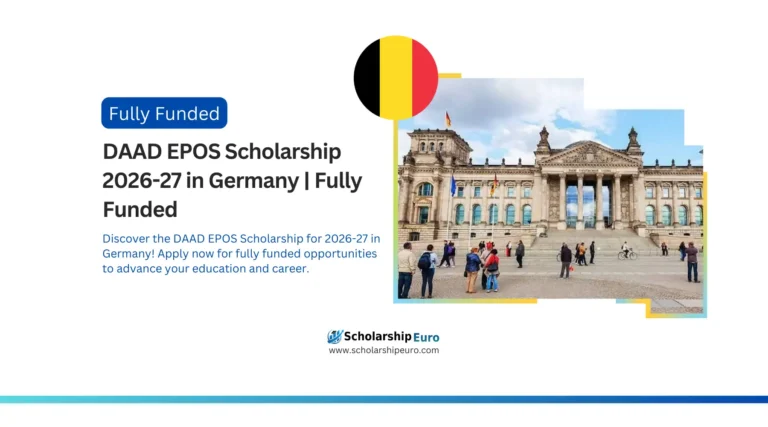The Max Planck Society located in Munich, Germany, provides 15 scholarships for PhD programs that are fully funded. Take advantage of different research opportunities as well as extensive financial assistance to establish yourself academically.
For PhD program applicants who are interested in fully funded seats, they can visit the official website of the university and submit their application forms. The online portal will allow all eligible candidates to fill out their application for a PhD program.
15 Fully Funded PhD Scholarships in Germany
Here is the list of 15 PhD fully funded Programs at the Max Planck Society, Munich, Germany
1- PhD Position in Collective Dynamics of Living Neuronal Networks
In this project, we are working with a newly developed stimulation method for biological neuronal networks (or living neural networks). The objective is to (a) greatly enhance its information processing power and (b) create a tool for clinical in vitro studies of these self-organizing systems.
Living neuronal networks’ population dynamical research exploits ontogenetic and high-density electrode arrays to enable unprecedented manipulations and observations of neurons, as well as the possibility of stimulating and recording thousands of neurons for hours (or days) on end.
Application Deadline: Open until filled
2- Fully Funded PhD Position in Theoretical Biology
We are looking for a PhD student (m/f/d) to join the research group ‘Stochastic Evolutionary Dynamics’ within the Department of Theoretical Biology at the Max Planck Institute for Evolutionary Biology.
The position is part of the Collaborative Research Unit ‘Density-dependent symbiosis in planktonic systems – DynaSym’, which brings together several research groups across Germany to test and develop basic concepts of density dependence of the symbiosis form (e.g., shift from predator-prey to mutualistic interaction and back).
Application Deadline: 31 August 2024
3- Fully Funded PhD Position in Organizing Architectures
The DFG Exploration Preparing Gathering “Arranging Structures” (3022), which comprises 12 doctoral understudy positions and in which the Goethe College Frankfurt/Principal, the Specialized College of Darmstadt, the College of Kassel, and our establishment are involved, centers around engineering as the coordinated, aggregate molding of present-day cultures through organizations, organizations, and talks.
This focus is based on the assumption that observation of social orders cannot be separated from architectural formations and that these, like the respective architectures, arise through specific, complex social negotiation processes.
Application Deadline: 28 July 2024
4- Fully Funded PhD Position in Cumulative culture in chimpanzees
The point of this PhD project is to test whether chimpanzees have the ability and inspiration to foster aggregate societies – the cycle where social developments gradually shape social articulations to such an extent that they become more qualified for their imagined reason. You will concentrate on chimpanzees’ capability to make and keep up with aggregately laid out societies through designated exploratory examines.
Besides, you will research whether chimpanzees’ interpersonal organization properties are prescient of their capability to foster combined societies with conduct perceptions and organization examinations.
Application Deadline: August 15th, 2024
5- Fully Funded PhD Position in Plasma-Spin-Energy
The Max Planck Institute of Microstructure Physics, Halle, Germany, Department Nanosystems from Ions, Spins, and Electrons (NISE), Director Prof. Stuart S. P. Parkin, is currently recruiting 1 Postdoc, 2 Ph.D. students, and 1 Engineer for a newly established German-Ukrainian Core of Excellence (CoE) “Plasma-Spin-Energy”.
The CoE will be focused on experimental and theoretical research in the field of advanced plasma technologies and spintronic materials and technologies, administered by the Max Planck Institute of Microstructure Physics (MPI-MSP) in cooperation with the V.N. Karazin Kharkiv National University (Kharkiv, Ukraine).
The CoE will be located initially at the MPI-MSP with the expectation of a later relocation to Karazin University in Kharkiv after the normalization of the current situation in Ukraine.
Application Deadline: Open until filled
6- Fully Funded PhD Position in Social effects on animal microbiome
Ongoing exploration recommends another conceivable advantage: that social creatures secure a portion of their microbiome from their conspecifics. On the off chance that this is valid, social accomplices might go about as ‘repositories’ of helpful microorganisms for people with recently created or as of late upset microbiomes.
Notwithstanding, it is significant to unravel social microbiome transmission from different variables that influence the microbiome, like eating routine, age, and scene use, to assess this speculation.
The Social Microbiome Group aims to understand how social living influences animal microbiomes, and in turn how microbes have shaped the costs and benefits of social evolution.
Application Deadline: September 1, 2024
7- Fully Funded PhD Position in Primate microbiomes
We are enrolling a motivated student interested in pursuing a PhD undertaking to create and test research inquiries regarding microbiome development in a drawn-out investigation of wild mandrills possessing Amboseli Public Park in Kenya.
These creatures have been the subject of constant review for more than 50 years, including a standard assortment of waste examples for north of 20 years – work that has come about in the broadest longitudinal microbiome datasets presently accessible for any creature species.
The student will gain experience with methods for computational analysis of microbial genomes and metagenomes, as well as with bacterial culture. Visits to Amboseli to collect additional samples are also a possibility depending on the candidate’s interests.
Application Deadline: September 1, 2024
8- Fully Funded PhD Position in Law & Anthropology
The Law & Anthropology Department offers a stimulating interdisciplinary forum where both anthropologists and legal scholars can engage with one another and conduct cutting-edge, policy-relevant research linked to the intensification of exchanges and encounters among and between legal systems, countries, and communities in today’s societies.
With this comes a growing demand for empirically grounded (ethnographic) knowledge and its translation – to the extent possible – into normative thinking at various levels of decision-making. The Department prioritizes research proposals that address this demand for translation in the increasingly plural European context.
Application Deadline: 1 August 2024


